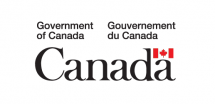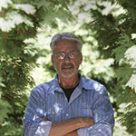Description
This workshop is open to writers with a completed manuscript, a novel underway, or a good outline or idea for a novel.
Be honest, now: Why do you read novels? For the brilliance of the writing? The characters? The overarching theme? Profound insights into the nature of the human animal and the relationships and moral principles that guide our lives?
All of the above. Writing
For the vast majority of the millions of readers who still get through novels every year, the story is everything. Writing fiction as a business may have become immeasurably more difficult in the Internet age—but as Rowling herself has taught us, you may write execrable prose and horrendous dialogue but if the story is good enough, you can succeed. We’re not going to encourage bad writing, but we will emphasize telling the story.
The workshop: Our approach will be as simple as the title–Just Tell the Damned Story. It took me many years, five published books and hundreds of rewrites to learn that simple truth, which emerged when I pared the opening sentence of a novel down to “I was ill.” I hope this workshop can save you some time and suffering.
We will begin with the first problem that confronts every writer: Identifying your story. We all have stories in our imagination or in our lives—they aren’t all worthy of novels. We will ask the basic questions: Is your story strong enough? Is it clear in your mind? Is it weighty enough to carry a novel, or would it be better as a novella or a short story?
Whether you have a completed manuscript or a mere sketch of an idea, identifying the story is central to the process. If you’ve finished a novel but you can’t clearly describe the story, you are going to have trouble selling it. As a first step, then, you will be asked to simply describe your story. No matter what stage you’re at, talking about it will help bring it to life.
Once you have identified and described the story you have to tell, we will move on to the second step: developing your story. No two writers work in the same way. Some start with an image or a character and discover the story as they write, some do a complete and detailed outline and complete their research before they write the first sentence. There is no right or wrong way. You need to find a way to develop
Our goal will be to help that process along.
The third step will be finding how to tell your story. Emphasis will be on simplicity, which does not mean telling a simple tale: It can mean finding a simple, direct approach to telling a complex, multi-layered story. The point is not to let your prose get in the way. The best writing is often writing that you don’t notice at all.
What you will need: A glimmer of an idea, a sketch, an outline, several chapters, or a completed novel. We’re not picky, as long as you have something to work with. The idea is to help you find your story and tell it, no matter what stage you are at in the process.
Expectations: That you will leave the workshop a better story-teller and novelist than when you entered it.


